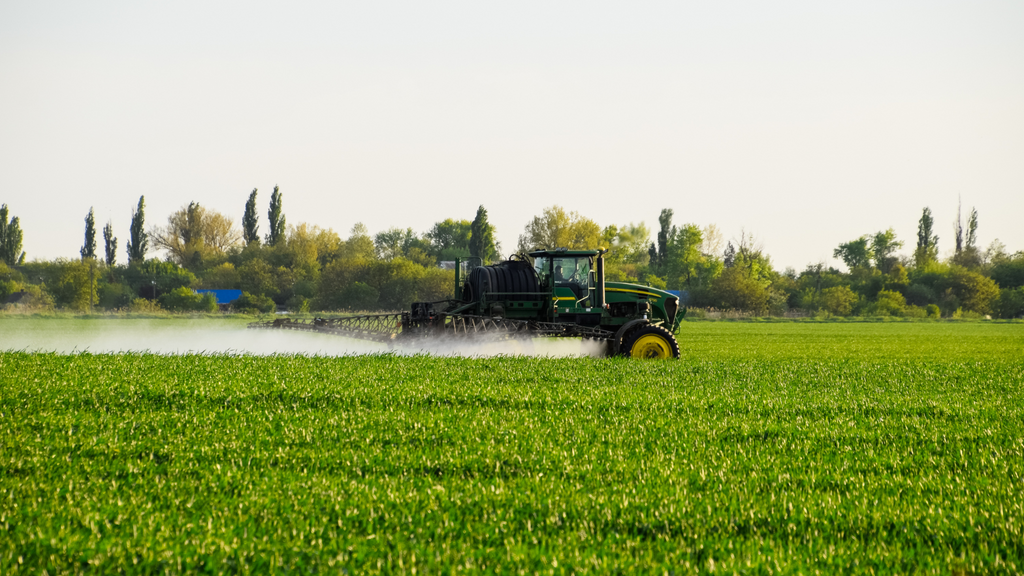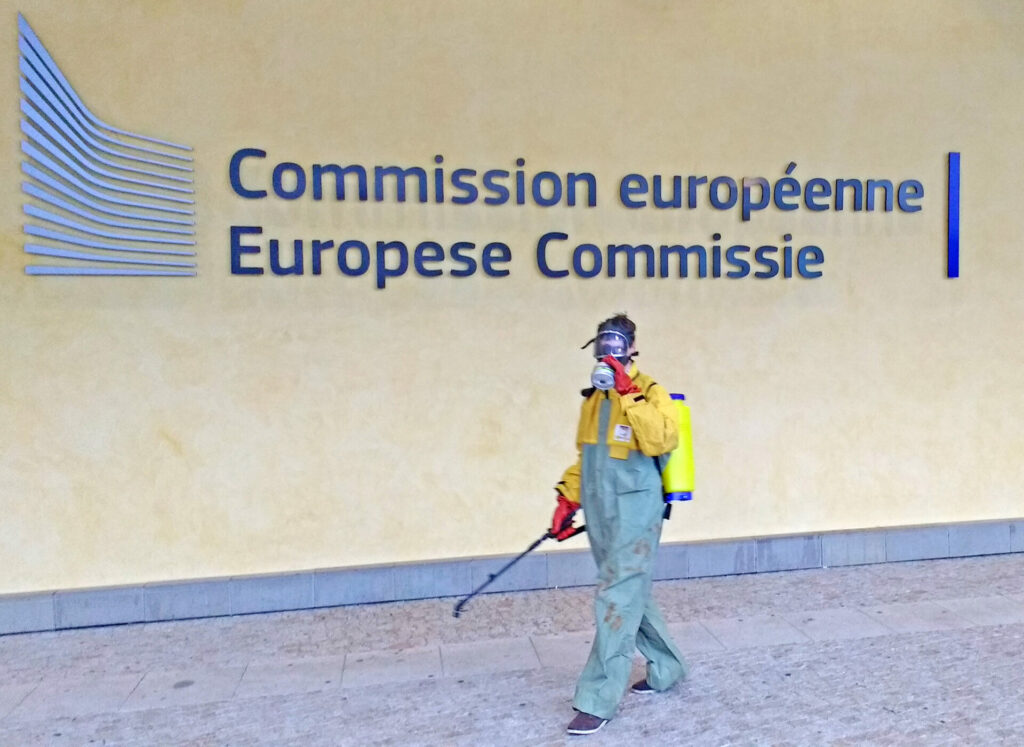The European Commission has decided to extend the use of the controversial substance glyphosate for another 10 years after European Member States failed on Thursday to decide on a new licence.
Member States held a vote at the Appeal Committee on Thursday 16 November regarding the licence for the use of glyphosate in the bloc, which expires on 15 December. Glyphosate is the active ingredient in the much-discussed weedkiller Roundup and has been classified as a "probable human carcinogen" by the International Agency for Research on Cancer, though this is disputed by the European Chemicals Agency (ECHA).
Whether an active substance can be authorised on the market is decided at the European level, but individual Member States then decide on the authorisation of specific products. Glyphosate is banned for private consumers in Flanders and Wallonia, for example.
The herbicide has been debated in the EU for years due to the potential health risks it poses, but it has not been banned. Its previous authorisation expired in December 2022 but it was extended for a year while scientists reviewed its safety. With the decision for an outright ban resting on Member States, they failed to reach unanimity on the dossier for the second time.

Not only a threat to human health, glyphosate can cause considerable damage to ecosystems. Credit: Canva
Conditions and restrictions
Immediately after Thursday's decision, the Commission announced that it would extend the licence for glyphosate for another 10 years. It defended its decision by stressing there was no qualified majority against or for the proposal, which resulted in it being legally obliged to take this decision.
"In line with EU legislation and in the absence of the required majority in either direction, the Commission is now obliged to adopt a decision before 15 December 2023 when the current approval period expires."
"The Commission – based on comprehensive safety assessments carried out by the European Food Safety Authority (EFSA) and the European Chemicals Agency (ECHA), together with EU Member States – will now proceed with the renewal of the approval of glyphosate for a period of 10 years."
However, it stressed that there is a goal to reduce the use of pesticides by 2030. The new licence will also come with some new conditions and restrictions on the use of glyphosate, such as a prohibition of pre-harvest use as a desiccant, maximum limits for five impurities in glyphosate in the material manufactured and the need for certain measures to protect non-target organisms.
The decision has been heavily criticised by various NGOs working to protect the environment and health. Greenpeace EU GMO and anti-glyphosate campaigner Eva Corral told The Brussels Times that "the science is clear: glyphosate is toxic to health and the environment. Greenpeace will now do what it can to change the course of things until 15 December, if not, we are facing another ten years of having this dangerous product in supermarkets."
Related News
- Dutch and Belgian scientists want glyphosate banned
- Belgium will not support glyphosate extension in Europe, say Flemish Greens
The case for glyphosate was made by major industries whose multinational operations are worth billions of euros. In Belgium, for instance, the German conglomerate Bayer produces herbicides near Antwerp, employing hundreds to do so. It has fought tooth and nail to ensure that its lucrative operations can continue.
Corral highlighted the European Commission's statement, which hints that Member States will have to manage risks associated with the chemical themselves, despite some Member States proving time and again their disregard for biodiversity in their region. The campaigner stresses that the decision will strip away safeguards, saying that "this is not the same level of protection as can be offered by an overall ban."

